 I like to read books that come from within other cultures, so a literature prize that brings attention to authors from outside the predominant literary cultures interests me.
I like to read books that come from within other cultures, so a literature prize that brings attention to authors from outside the predominant literary cultures interests me.
The Man Booker International Prize was originally established in 2005, biannually rewarding an author for a body of work originally written in any language as long as it was widely available in English.
From 2016, the prize became a translation prize, awarded annually for a single work of fiction, translated into English and published in the UK. To highlight the importance of translation, the £50,000 prize is divided equally between the author and the translator.
The Man Booker International Prize has revealed their ‘Man Booker Dozen’ of 13 novels in contention for the 2018 prize, which celebrates the finest works of translated fiction from around the world. As with the Women’s Prize for Fiction 2018, extract summaries of the books are provided via the Prize website.
The judges considered 108 books. Lisa Appignanesi, chair of the 2018 Man Booker International Prize judging panel, commented:
‘Judging this Man Booker International Prize has been an exhilarating adventure. We have travelled across countries, cultures, imaginations, somehow to arrive at what could have been an even longer long list. It’s one which introduces a wealth of talent, a variety of forms and some writers little known in English before. It has great writing and translating energy and we hope readers take as much pleasure in discovering the work as we did.’
The full 2018 longlist is as follows: Author (nationality), Translator, Title (imprint)
Laurent Binet (France), Sam Taylor(tr.), The 7th Function of Language (Harvill Secker)
Roland Barthes is knocked down in a Paris street by a laundry van. It’s February 1980 and he has just come from lunch with François Mitterrand, a slippery politician locked in a battle for the Presidency. Barthes dies soon afterwards. History tells us it was an accident. But what if it were an assassination? What if Barthes was carrying a document of unbelievable, global importance? A document explaining the seventh function of language – an idea so powerful it gives whoever masters it the ability to convince anyone, in any situation, to do anything.
Javier Cercas (Spain), Frank Wynne(tr.), The Impostor (MacLehose Press)
The Impostor is a true story that is packed with fiction – fiction created by its main character, Enric Marco. But who is Enric Marco? A veteran of the Spanish civil war, a fighter against fascism, an impassioned campaigner for justice, and a survivor of the Nazi death camps? Or, is he simply an old man with delusions of grandeur, a charlatan who fabricated his heroic war record, who was never a prisoner in the Third Reich and never opposed Franco, but simply a charming, beguiling and compulsive liar who refashioned himself as a defender of liberty and who was unmasked in 2005 at the height of his influence and renown?
In this novel – part narrative, part history, part essay, part biography, part autobiography – Javier Cercas unravels the man and delves with passion and honesty into the most ambiguous aspects of what makes us human – our infinite capacity for self-deception, our need for conformity, our thirst for affection and our conflicting needs for fiction and for the truth.
Virginie Despentes (France), Frank Wynne (tr.), Vernon Subutex 1 (MacLehose Press)
Vernon Subutex was once the proprietor of Revolver, an infamous music shop in Bastille. His legend spread throughout Paris. But by the 2000s, with the arrival of the internet and the decline in CDs and vinyl, his shop is struggling. When it closes, Subutex is out on a limb, with no idea what to do next. Nothing sticks. Before long, his savings are gone, his employment benefit is cut, and when the friend who had been covering his rent dies suddenly, Subutex finds himself relying on friends with spare sofas and ultimately alone and out on the Paris streets. But, as he is stretching out his hand to beg from strangers in the street, a throwaway comment he made on Facebook is taking the internet by storm.
Vernon does not realise this, of course. It has been many weeks since he was able to afford access to the internet, but the word is out: Vernon Subutex has in his possession the last filmed recordings of Alex Bleach, famous musician and Vernon’s benefactor, who recently died of a drug overdose. Unbeknown to Vernon, a crowd of people, from record producers to online trolls and porn stars, are now on his trail.
Jenny Erpenbeck (Germany), Susan Bernofsky(tr.), Go, Went, Gone (Portobello Books)
Newly retired Richard is considering his new life without his work as a university professor. He spends his days cooking, pottering in his garden and walking around his home city of Berlin – a place he has lived his entire life. Following an excursion to Alexanderplatz he befriends a group of African men whose camp is being pulled down by the authorities. These asylum seekers have found their way to Berlin from all over Africa by way of Libya and then Italy. They have no ‘right’ to be in Berlin, and they must follow the protocols and rules if they have any hope in being allowed to remain.
Richard is captivated by their stories and by their predicament. Born during World War II, he was almost lost as a baby due to the ‘chaos of war’. He grew up and worked in East Berlin until one day East and West unified and his home and horizons changed dramatically. Go, Went, Gone is a novel that explores some of the most important issues of the day of race, immigration and the question of European identity.
Han Kang (South Korea), Deborah Smith(tr.), The White Book (Portobello Books)
An unnamed narrator moves to a European city where she is haunted by the story of her older sister, who died a mere two hours after birth. As she contemplates the child’s short life she focuses on the whiteness and all it symbolises. The White Book is a meditation on colour, beginning with a list of white things. It is a book about mourning, rebirth and the tenacity of the human spirit. It investigates the fragility, beauty and strangeness of life.
Ariana Harwicz (Argentina), Sarah Moses & Carolina Orloff(tr.), Die, My Love (Charco Press) – my review here
In a patch of dilapidated French countryside, a woman struggles with the demons of her multitudinous internal conflicts. Embracing exclusion, yet desiring to belong, craving freedom whilst feeling trapped, yearning for family life and yet wanting to burn the entire façade down. Given surprising leeway by her family for her increasingly erratic behaviour, she instead feels ever more incarcerated, stifled. Motherhood, womanhood, the mechanisation of love, the inexplicable brutality of having ‘your heart live in someone else’s’; these questions are faced with raw intensity. It is not a question of whether a breaking point will be reached, but rather when, and how violent a form will it take.
László Krasznahorkai (Hungary), John Batki, Ottilie Mulzet & George Szirtes, The World Goes On (Tuskar Rock Press)
A Hungarian interpreter obsessed with waterfalls, at the edge of the abyss in his own mind, wanders the chaotic streets of Shanghai. A traveller, reeling from the sights and sounds of Varanasi, encounters a giant of a man on the banks of the Ganges ranting on the nature of a single drop of water. A child labourer in a Portuguese marble quarry wanders off from work one day into a surreal realm alien from his daily toils. A collection of 21 stories from the winner of the Man Booker International Prize 2015.
Antonio Muñoz Molina (Spain), Camilo A. Ramirez, Like a Fading Shadow (Tuskar Rock Press)
On 4 April 1968, Martin Luther King was murdered by James Earl Ray. Before Ray’s capture and sentencing to 99 years’ imprisonment, he evaded the FBI for two months as he crossed the globe under various aliases. At the heart of his story is Lisbon, where he spent 10 days attempting to acquire an Angolan visa. Aided by the recent declassification of James Earl Ray’s FBI case file, Like a Fading Shadow weaves a taut retelling of Ray’s assassination of King, his time on the run and his eventual capture, tied together with an honest examination of the novelist’s own past.
Christoph Ransmayr (Austria), Simon Pare, The Flying Mountain (Seagull Books)
The Flying Mountain tells the story of two brothers who leave the southwest coast of Ireland on an expedition to Transhimalaya, the land of Kham, and the mountains of eastern Tibet – looking for an untamed, unnamed mountain that represents perhaps the last blank spot on the map. As they advance toward their goal, the brothers find their past, and their rivalry, inescapable, inflecting every encounter and decision as they are drawn farther and farther from the world they once knew. Only one of the brothers will return. Transformed by his loss, he starts life anew, attempting to understand the mystery of love, yet another quest that may prove impossible.
Ahmed Saadawi (Iraq), Jonathan Wright, Frankenstein in Baghdad (Oneworld)
From the rubble-strewn streets of US-occupied Baghdad, the junk dealer Hadi collects human body parts and stitches them together to create a corpse. His goal, he claims, is for the government to recognise the parts as people and give them a proper burial. But when the corpse goes missing, a wave of eerie murders sweeps the city, and reports stream in of a horrendous-looking criminal who, though shot, cannot be killed. Hadi soon realises he’s created a monster, one that needs human flesh to survive – first from the guilty, and then from anyone who crosses his path. As the violence escalates and Hadi’s acquaintances – a journalist, a government worker and a lonely old woman – become involved, the ‘Whatsitsname’ and the havoc it wreaks assume a magnitude far greater than anyone could have imagined.
Olga Tokarczuk (Poland), Jennifer Croft, Flights (Fitzcarraldo Editions)
Flights is a novel about travel in the 21st century and human anatomy. From the 17th century, the story of the real Dutch anatomist Philip Verheyen, who dissected and drew pictures of his own amputated leg, discovering in so doing the Achilles tendon. From the 18th century, the story of a North African-born slave turned Austrian courtier stuffed and put on display after his death in spite of his daughter’s ever more desperate protests, and the story of Chopin’s heart as it makes the covert journey from Paris to Warsaw, stored in a tightly sealed jar beneath his sister’s skirt. From the present we have the trials and tribulations of a wife accompanying her much older professor husband as he teaches a course on a cruise ship in the Greek islands, the quest of a Polish woman who emigrated to New Zealand as a teenager but must now return to Poland in order to poison her terminally ill high school sweetheart, and the slow descent into madness of a young husband whose wife and child mysteriously vanished on a vacation on a Croatian island and then appeared again with no explanation.
Through these narratives, interspersed with short bursts of analysis and digressions on topics ranging from travel-sized cosmetics to the Maori, Flights guides the reader beyond the surface layer of modernity and towards the core of the very nature of humankind.
Wu Ming-Yi (Taiwan), Darryl Sterk, The Stolen Bicycle (Text Publishing) – my review here
Cheng, a novelist, once wrote a book based on his father’s disappearance 20 years ago. One day he receives a reader’s email asking whether his father’s bicycle disappeared as well. Perplexed and amused, Cheng decides to track down the bicycle, which was stolen years ago. The search takes him on an epic quest, deep into the secret world of antique bicycle collectors via a scavenger’s treasure trove and the mountain home of an aboriginal photographer. He also finds himself caught up in the strangely intertwined stories of Lin Wang, the oldest elephant who ever lived, the soldiers who fought in the jungles of South-East Asia during the World War II and the secret worlds of the butterfly handicraft makers… The Stolen Bicycle is both a historical novel about bicycles, elephants and war, and a startlingly intimate meditation on memory, family and home.
Gabriela Ybarra (Spain), Natasha Wimmer, The Dinner Guest (Harvill Secker)
In 1977, three terrorists broke into Gabriela Ybarra’s grandfather’s home and pointed a gun at him in the shower. This was the last time his family saw him alive, and his kidnapping played out in the press, culminating in his murder. Ybarra first heard the story when she was eight, but it was only after her mother’s death, years later, that she felt the need to go deeper and discover more about her family’s past. The Dinner Guest is a novel inspired by what she found. It connects two life-changing events – the very public death of Ybarra’s grandfather and the more private pain as her mother dies from cancer and Gabriela cares for her.
***
I haven’t read any of these books, though I am familiar with a number of the authors, I’ve read two excellent books by Han Kang, Human Acts and The Vegetarian. I’ve been meaning to read Jenny Erpenbeck for a while.
I like the sound of the novels that intertwine memoir with fiction, Gabriela Ybarra’s The Dinner Guest and Wu Ming-Yi’s The Stolen Bicycle.
The list does feel a little too Euro-centric for my taste, with 9 of the 13 storytellers coming from Europe, it’s great to see an Argentinian author included, I did read that Charco Press discovered in an informal survey that many readers when asked to name a South American author are mentioning names who were popular 30 years ago, so they’re aiming to bring us up to speed with some exciting contemporary authors who’ve been overlooked.
I’ll be waiting to read a few of the reviews from the Shadow panel in the coming weeks and months and in the meantime continue with reading a few more from the Women’s Prize.
The shortlist of six books will be announced on 12 April at an event at Somerset House in London, and the winner of the 2018 prize will be announced on 22 May.
***
What are your thoughts on this list?

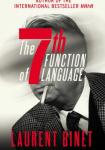
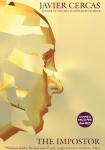
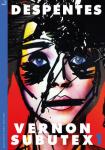



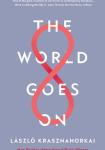
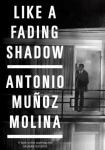
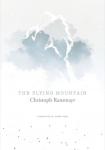
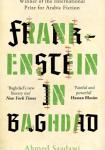
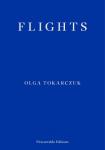


Thanks for this post – really useful summary! Somewhat to my surprise, I liked Laurent Binet’s HHhH (also translated by Sam Taylor), so it’s good to see he’s written something new. The White Book is already on my TBR list because it’s been longlisted for the Wellcome (and because The Vegetarian was fantastic). I’m similarly interested in Jenny Erpenbeck, and Charco Press are bang on – I’d definitely struggle to name contemporary South American writers, so Die, My Love looks intriguing.
LikeLiked by 1 person
I too loved HHhH so I’m keen on reading the Binet!
LikeLiked by 1 person
Thank you Claire for your comprehensive post.. This year none of the long list books have found their way to my TBR, I will right this omission.
I see many authors/titles I’d like to read.
LikeLiked by 1 person
I look forward to hearing what your thoughts are on some of these too Sylvie, it’s an intriguing list.
LikeLike
I’ma huge Han Kang fan, so I’ll start there. Then the Wu Ming-wi sounds intriguing. An interesting list.
LikeLiked by 2 people
Good place to start, I’d love to read those two.
LikeLiked by 1 person
I haven’t read this latest from Han Kang but Human Acts was one of my favs. However, since Kang won 2 years ago, it would be nice to see that spot (and spotlight) go to another author but until I read the list, that’s just a bias.
That Vernon story also sounds intriguing but I don’t know when I’ll get to check out these books.
LikeLiked by 1 person
Yes, I agree, it would be good to see the prize go to a new author/translator combination. I hope some of these make it onto your library list!
LikeLiked by 1 person
Like you, Claire, I appreciate what the Man Booker Prize brings to my awareness of world literature. I’m glad to see ‘Go Went Gone’ on the long list — it’s extraordinary in the story it tells re: the times in which we live.
LikeLiked by 2 people
Yes, I do love that it reaches out into world literature and always comes up with little known voices to investigate and publishers to be aware of too. I hope to read Go, Went, Gone soon.
LikeLike
I’m another one who plans to start with Han Kang – it’s another very interesting list. Thanks for taking the trouble to provide such a great summary. 🙂
LikeLiked by 1 person
I’m happy to hear you appreciated the summary Liz, I know I like to see them all in one place and to know a little about each book and elsewhere, it’s not easy to see that on one page, book covers are insufficient to decide where to investigate and clicking on 13 titles is time consuming. I know I’ll be coming to this page to review the titles often, happy to oblige.
LikeLiked by 1 person
I’ve saved this post until I knew I could absorb it properly. Oh, for 36-hour days; so many titles that excite me here. Standing out for me is Go, Went, Gone; The Flying Mountain and The Stolen Bicycle. But close behind is The White Book and The 7th Function of Language – especially now I’ve got the connection with HHhH. I had every intention of reading that and somehow it dropped off my radar. It’s firmly back on again now, together with a renewed determination to read more globally. A great post – thanks, Claire!
LikeLike
Pingback: Die, My Love by Ariana Harwicz tr. Sarah Moses, Carolina Orloff – Word by Word
Pingback: The Stolen Bicycle by Wu Ming-Yi tr. Darryl Sterk – Word by Word